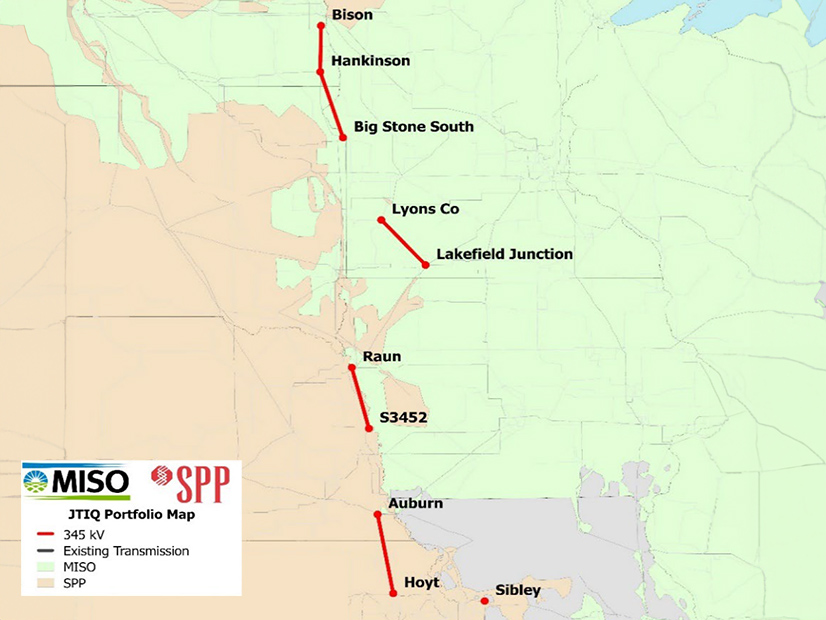
SPP’s Board of Directors added its approval June 12 to a proposed tariff revision that establishes a cost-allocation framework for projects in the Joint Targeted Interconnection Queue (JTIQ) with MISO.
The revision request (RR620) addresses chronic transmission issues on the RTO’s seam with MISO related to generator interconnection requests and implements cost-allocation policies already approved by SPP’s state regulators. It also memorializes and defines how the JTIQ process will be implemented and applied once executed.
Combined with earlier endorsements from stakeholders June 7 and state regulators June 10, RR620’s approval ends a process that began nearly four years ago after repeated fruitless attempts to find interregional projects both RTOs could agree on.
SPP CFO David Kelley, who has assumed new responsibilities since the work began, told the board, “This feels like we are near the end of a really long marathon. It’s been a good journey.”
The trek began with a thawing of relations between the two RTOs and their CEOs and, Kelley said, “a challenge to both SPP and MISO staff to go and work out a solution to problems that were shared by both RTOs.”
The grid operators have identified five projects along their seam that can help unlock new generation and resolve congestion issues in the absence of interregional projects.
After being awarded a $464 million grant from the U.S. Department of Energy, the RTOs revised their original direct-billing approach for JTIQ projects to one that assigns 100% of the portfolio’s engineering and construction costs for interconnection requests that meet certain criteria. Those costs are estimated at between $1.6 billion and $1.8 billion before applying the DOE funds. (See MISO, SPP Propose 90-10 Cost Split for JTIQ Projects, DOE Announces $3.46B for Grid Resilience, Improvement Projects.)
“The more complicated piece of this would be associated with the funding and the handling of money from interconnection customers in both RTOs, as well as the transmission owners in both RTOs,” Kelley said. “That’s something that has never been done before, and it took a significant amount of time to figure those things out.”
The Members Committee’s advisory vote passed 17-2, with two abstentions. EDP Renewables and the Advanced Power Alliance (APA) both voted against the measure.
EDP’s David Mindham said that while his independent power producer sector supports transmission buildout and the JTIQ projects, the process itself represents a failure of planning in the two regions. He said a lack of coordinated assumptions and models has led to a “dysfunctional planning system that is broken.”
“Generators want this transmission to be built … and we’re willing to pay for it,” Mindham said. “But in order to do that, the entities paying for this transmission are being asked to compromise on a lot of other issues and a lot of additional things that have bad precedent nationally for us, and we just can’t support that today.”
Kelley reassured Mindham and the APA’s Steve Gaw that the framework’s structure is specific to the projects in the current portfolio and that their objections could be considered for the next round.
“We fully understand that should there be another round of [JTIQ projects], we’re going to have these conversations and justify either something different or something else that is viable going forward,” Kelley said.
The Regional State Committee unanimously approved the tariff revision June 10, and the Markets and Operations Policy Committee endorsed it June 7 with 89% approval.
SPP will coordinate the FERC filing with MISO once its neighbor gains approval of its tariff revision. It will seek board approval of the JTIQ portfolio if the commission accepts the tariff change and updates to its joint operating agreement with MISO.



